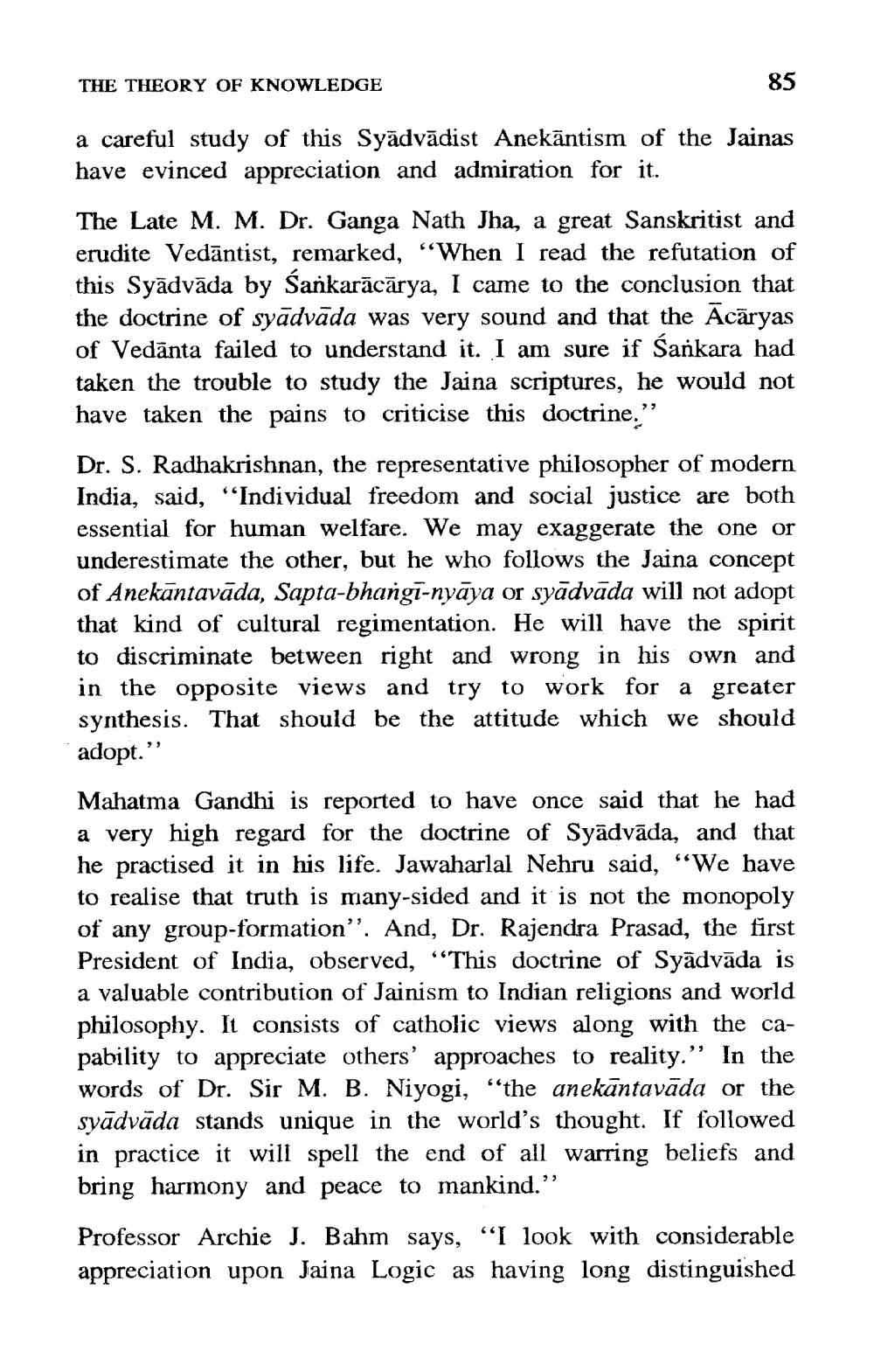________________
THE THEORY OF KNOWLEDGE
85
a careful study of this Syādvādist Anekāntism of the Jainas have evinced appreciation and admiration for it. The Late M. M. Dr. Ganga Nath Jha, a great Sanskritist and erudite Vedāntist, remarked, “When I read the refutation of this Syādvāda by Sankarācārya, I came to the conclusion that the doctrine of syādvāda was very sound and that the Acāryas of Vedānta failed to understand it. I am sure if Sankara had taken the trouble to study the Jaina scriptures, he would not have taken the pains to criticise this doctrine." Dr. S. Radhakrishnan, the representative philosopher of modern India, said, “Individual freedom and social justice are both essential for human welfare. We may exaggerate the one or underestimate the other, but he who follows the Jaina concept of Anekantavāda, Sapta-bhangi-nyāya or syādvāda will not adopt that kind of cultural regimentation. He will have the spirit to discriminate between right and wrong in his own and in the opposite views and try to work for a greater synthesis. That should be the attitude which we should adopt.” Mahatma Gandhi is reported to have once said that he had a very high regard for the doctrine of Syādvāda, and that he practised it in his life. Jawaharlal Nehru said, “We have to realise that truth is many-sided and it is not the monopoly of any group-formation". And, Dr. Rajendra Prasad, the first President of India, observed, “This doctrine of Syādvāda is a valuable contribution of Jainism to Indian religions and world philosophy. It consists of catholic views along with the capability to appreciate others' approaches to reality.” In the words of Dr. Sir M. B. Niyogi, “the anekāntavāda or the syādvāda stands unique in the world's thought. If followed in practice it will spell the end of all warring beliefs and bring harmony and peace to mankind.” Professor Archie J. Bahm says, “I look with considerable appreciation upon Jaina Logic as having long distinguished




